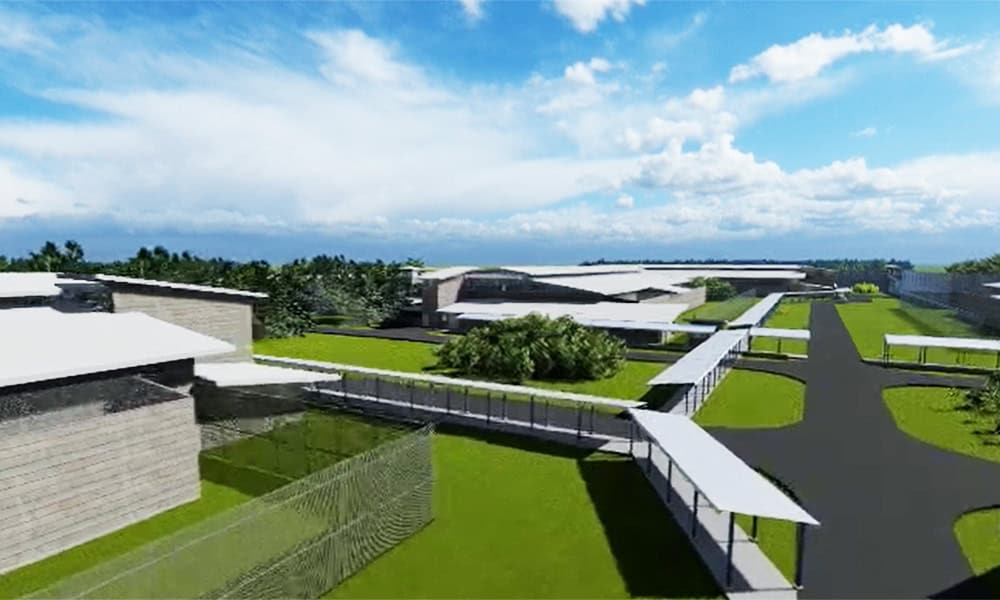Costa Rica faces a sharp increase in homicides tied to drug trafficking, putting heavy strain on its prisons. In response, the government has moved forward with plans for a new maximum-security facility, set to open in June 2026. This project draws directly from El Salvador’s approach under President Nayib Bukele, focusing on isolating dangerous criminals to restore order.
Justice Minister Gerald Campos shared the update during a regular press conference with President Rodrigo Chaves and other officials. He confirmed that bids for building and outfitting the prison, known as the High Security and Organized Crime Center or CACCO, are now open. The site sits next to La Reforma, the nation’s largest prison in Alajuela province. “We aim to have it operational by June,” Campos said, stressing that the process follows all legal steps.
The prison carries a price tag of $35 million, or about 21 billion colones. It will span 90,000 square meters, with 31,000 square meters developed into five separate modules. Each module can hold around 1,020 inmates, adding up to space for 5,100 people total. Of those, 1,200 spots go to high-risk individuals, such as heads of criminal networks, repeat violent offenders, those facing extradition, and inmates needing extra safeguards.
This comes as Costa Rica deals with overcrowding that tops 30 percent in its current system. The new center promises to boost overall capacity by 40 percent and drop overcrowding below 20 percent, according to justice officials. It also targets the growing reach of organized crime, which operates even from behind bars and fuels street violence that harms daily life and the economy.
President Chaves tied the prison’s timeline to broader reforms, including tougher laws and a stronger court system. He noted that the facility must align with these changes to make a real difference against crime. Construction starts later this year, with El Salvador providing guidance on design, planning, and building methods based on their CECOT model.
Campos pointed out the need for modern setups to prevent breakdowns like riots or escapes. Without them, the system could falter under pressure from drug gangs. The government has sped up the project, originally eyed for later, to address the urgent security issues head-on.
This step marks a shift for Costa Rica, long seen as stable in the region but now hit hard by cartel activities. Homicides have climbed steadily, driven by disputes over drug routes. By containing key figures in a secure environment, authorities hope to weaken these groups and bring back safety.
Officials have made clear that the prison focuses on high-threat cases, not everyday offenders. It includes features to limit contact and influence, much like El Salvador’s system, which has drawn attention for its strict controls.
As bids come in, the next phase involves picking a contractor. Campos assured that transparency guides the selection, with updates to follow. For now, the June 2026 goal stands as a key part of the push to rebuild public trust in security measures.






